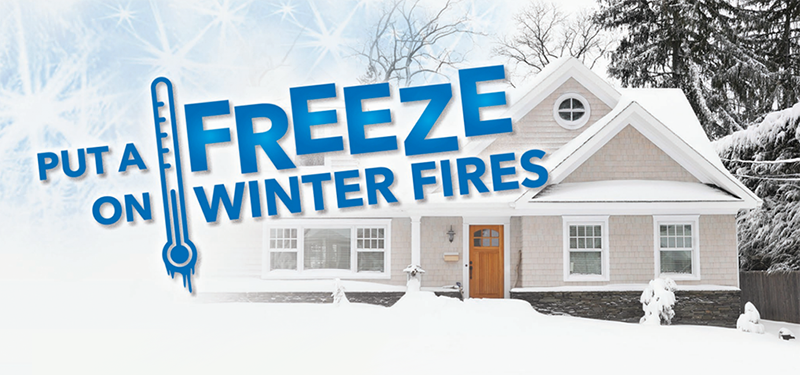The United States Fire Administration (USFA) and the National Fire Protection Association (NFPA) are working together to remind everyone that home fires are more prevalent in winter than in any other season. This is due in part to an increase in cooking and heating fires. Holiday decorations and winter storms that can interrupt electrical service and cause people to turn to alternative heating sources also contribute to the increased risk of fire in winter.
Winter fires can be prevented! The following fire safety tips can help you maintain a fire-safe home this winter season.
Plan ahead for the adversities of the winter season by taking a few simple preventative measures.
- Make certain your wood stove and heating system are always properly maintained and ready for extended use.
- For wood-burning tips contact your local fireplace dealer.
- For maintenance of your heating system contact your service person.
- Protect your water pipes from freezing by planning ahead.
- Turn off all outside faucets (preferably from an inside shut-off to each faucet). If no inside shut-off is provided, wrap the pipe with approved (UL) heating tape. You may also turn on any inside faucet, letting water drip slightly, allowing for expansion.
- Make certain that all vents from the crawl space under the house are closed or sealed to keep out cold air.
Note: Should pipes become frozen do not use torches or other flame-producing equipment.
A hair dryer often will thaw pipes, as will the application of warm water. Pay particular attention to the north and east sides of the house as they are vulnerable to freezing due to prevailing winds.
- In the event a broken pipe occurs, plan ahead by locating the main shut-off to the house and be prepared with a proper-fitting wrench.
- PLAN AHEAD Broken water pipes need not occur if precautions are taken.
Home Heating Safety
For more please The United States Fire Administration (USFA) and the National Fire Protection Association (NFPA) websites.

